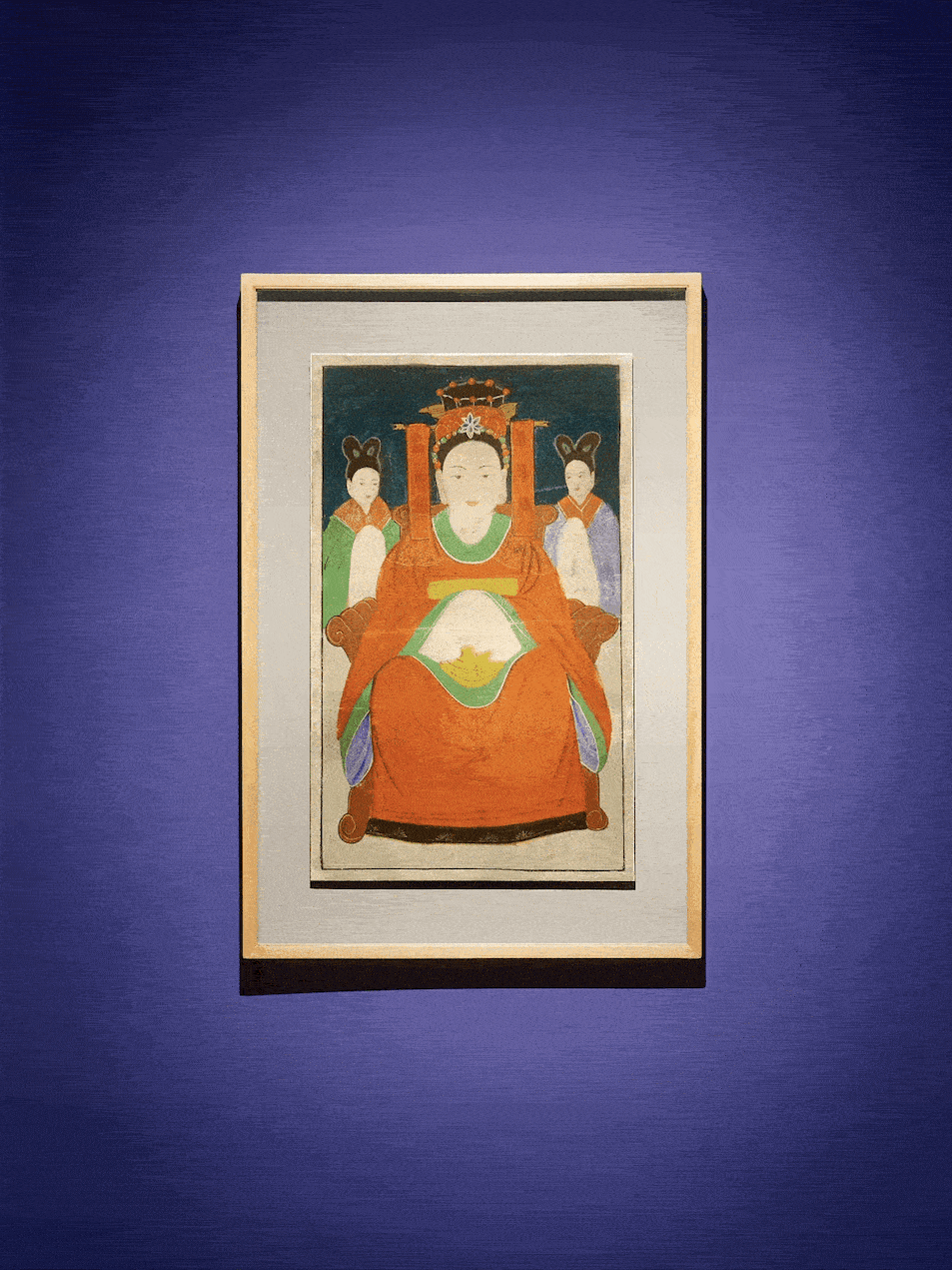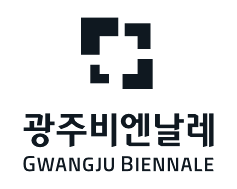April 1 – May 9, 2021
111 Biennale-ro, Buk-gu
61104 Gwangju
South Korea
“Each moment is a leap forwards from the brink of an invisible cliff, where time’s keen edges are constantly renewed. We lift our foot from the solid ground of all our life lived thus far and take that perilous step out into the empty air. Not because we can claim any particular courage, but because there is no other way.” —Han Kang, The White Book, 2016
The 13th Gwangju Biennale, Minds Rising, Spirits Tuning, closed on May 9, 2021. The artistic directors, Defne Ayas and Natasha Ginwala, said: “A chapter in the biennale exhibition, “The Undead from Four Directions,” meditated on death, passageways into the afterlife and trials of mourning. Since we started this journey more than two years ago, the themes of the biennale have become all too real. As the complex curatorial, editorial and organizational trajectories of this edition have unfolded and drastic planetary asymmetries have become all the more evident, we still find ourselves asking: How to continue into a remedial path for our shared humanity where ailment and cure embrace communality? In this interregnum of systemic breakdown, volatility and dramatic erosion, we all have gone through drastic shifts in our lives, all pointing to the globality of our condition. Throughout, we have been grateful for the substance, intellectual and intuitive synergies and tireless efforts of the artists and team members who have anchored this project, who have boldly carried it into what it has become and shared with us more sustainable paths.”
“For some of us, absorbing the pain of trauma is familiar. We carry a deep wound that seeps to our necks, our backs, and our heart. It is a pain that reverberates whenever we hear about another death, or about the perpetual stress that comes with displacement.” —Edna Bonhomme, “The Kingdom of the Sick”
Directed by Defne Ayas and Natasha Ginwala, Minds Rising, Spirits Tuning set out to examine the spectrum of the extended mind through artistic and theoretical means. Delving into a broad set of cosmologies, the exhibition activated multitudinous forms of intelligence, planetary life-systems and modes of communal survival as they contend with the present and future horizon of cognitive capitalism, algorithmic violence and planetary imperialisms.
Further materials related to the exhibition are available online. These include:
The virtual tour of the exhibition
Gwangju Biennale Exhibition Hall
Gallery 1—Rising Together
Gallery 2—Kinship of Mountains, Fields and Rivers
Gallery 3—Bodies in Desire, Beyond the Disciplinary Fold
Gallery 4—Matters of Mutation
Gallery 5—Matriarchy in Motion
Gwangju National Museum—The Undead from Four Directions
Gwangju Theater—Sovereign Image Worlds
Yangnim Mountain / Horanggasy Artpolygon—Deep Memory, Multi-species Time
A film of Through the Gates: The Procession, which was choreographed by ∞OS (Dmitry Paranyushkin and Koo Des) to open the exhibition, features live commissions with a ceremony by esteemed nun Jeong Kwan; a vocal composition with Ume Sámi lyrics by Katarina Barruk; a newly commissioned performance by Cecilia Bengolea; and commissioned works by artists Angelo Plessas, Sissel Tolaas in collaboration with Sruli Recht, Sangdon Kim and Siyabonga Mthembu. The film was directed by biennale producer Davide Quadrio and produced in collaboration with Jinyoung Shin (apparat/US) x Swan Studio x StudioPEBS. Supported by Alcantara.
Guidebook
The exhibition guidebook, designed by Remco van Bladel, includes new key texts on artists written by the curatorial team, and is available for free online.
Website
The Biennale website, featuring online commissions, an over of public programs, and the five issues of the journal Minds Rising.
Catalogue
The exhibition catalogue, designed by Remco van Bladel, features contributions originally published on the editorial platform of the Biennale, “Minds Rising”, an online, bilingual journal which launched in May 2020. Topics expand from tragic historical trauma embedded in female bodies through the Jeju and Gwangju uprisings in South Korea, to the fetishization of “smart” technology in daily life in North Korea; connections between Buddhism and networked technology in East Asia; plural cosmologies and geopoetics of Eurasia; queer life trajectory embedded in indigenous shamanistic culture in the Russian Far East; inventive strategies of aboriginal dissent against the logic of settler colonialism in new forms of police surveillance in Australia; new roles of psychotherapy for millennials in the age of COVID-19 in Europe, North America, and North Africa; as well as discussions on plasticity towards ancestral biological pasts. Selected contributions to the journal are printed in the exhibition catalogue. Contributions by: a.o., Akbar Abbas, Edna Bonhomme, Yuk Hui, Yani Yoo, Jeong Kyeong-Un, Travis Jepessen, Ko Bo-Hye, Catherine Malabou, Bárbara Rodríguez Muñoz, Elizabeth A. Povinelli, Francesca Tarocco, Cecilia Vicuña, Iaroslav Volovod & Valentin Diaconov, Yang Jongsung, Yani Yoo, Yoon Yul Soo, Mi You. Edited by Defne Ayas, Natasha Ginwala, and Young-jun Tak. Information on how to purchase the catalogue can be found here.
Stronger than Bone
The Feminism(s) reader, Stronger than Bone, co-edited by the artistic directors with Jill Winder, can be purchased via the Archive Books website. Written by thinkers and allies across generations with a focus on heterogeneity, intersectionality, and influence across geographies, this reader arrives in the world at a moment of heightened fragility, under the shadow of the coronavirus pandemic. With contributions by: Chris Abani, Gloria Anzaldúa, Wendy Hui Kyong Chun & Sarah Friedland, Tishani Doshi, Maya Indira Ganesh, Eeva-Kristiina Harlin & Čiske-Jovsset Biret Hánsa Outi/Outi Pieski, Laurel Kendall, Kim Hyesoon, Kim Seongnae, S. Heijin Lee, Audre Lorde, Soraya Murray, Esha Pillay & Quishile Charan, Djamila Ribeiro, Tamarra & Brigitta Isabella, Oxana Timofeeva, and Cecilia Vicuña. Edited by Defne Ayas, Natasha Ginwala, and Jill Winder. Published by: Gwangju Biennale Foundation and Archive Books, Berlin ISBN: 978-3-948212-30-8
Media contacts
National press contact: Elisa Lee, elisa.lee [at] gwangjubiennale.org
International press contact: Sam Talbot, sam [at] sam-talbot.com
biennale [at] gwangjubiennale.org / T 82 62 608 4114
*[1] Byeolsang Mama, [God Preventing Epidemics], 20th century. Installation view, 13th Gwangju Biennale, Gwangju National Museum, Gwangju, South Korea, 2021. Courtesy of the Museum of Shamanism. Photo: Sang tae Kim. [2] Yeosansin [Mountain Goddess]. Color on paper, 88 x 65 cm. Courtesy of Gahoe Museum, Seoul. [3] Yongsin (Dragon God), color on paper, 97x72cm, Courtesy of Gahoe Museum, Seoul [4] Theo Eshetu, Ghostdance, 2020, video still, Single-channel video, color, sound 18 min. With Edivaldo Ernesto and Yuko Kaseki In collaboration with Samuele Malfatti and Keir Fraser Commissioned by the Gwangju Biennale Foundation for the 13th Gwangju Biennale [5] Bird-shaped earthenware, Age of the Three States. Installation view, 13th Gwangju Biennale, Gwangju National Museum, 2021. Photo: Sang tae Kim [6] Minds Rising, Spirits Tuning, exhibition view 13th Gwangju Biennale, Gwangju National Museum, 2021, work by Gala Porras-Kim, relics from the Gahoe Minhwa Museum, Seoul, and facsimiles from the Wellcome Collection, London.


